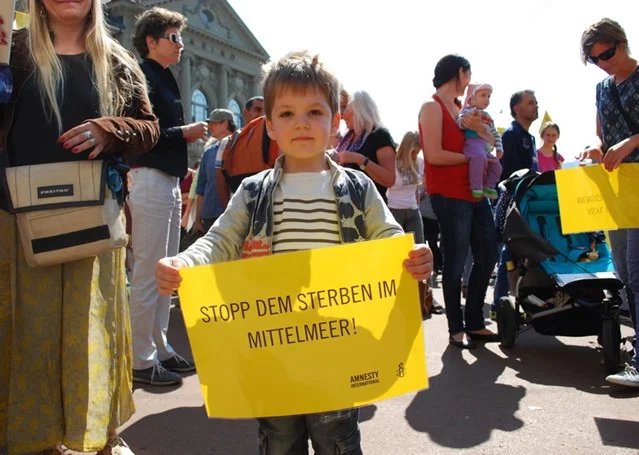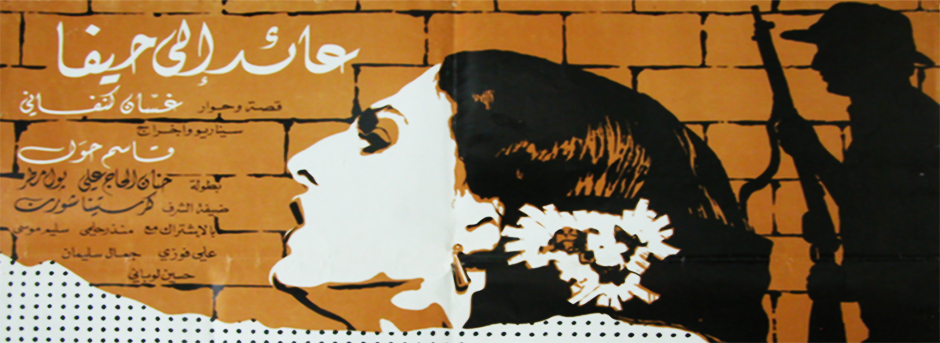This page hosts sample lesson plans and resources for teachers to use in designing a unit about refugees and forced displacement. The project, by Rochelle Davis and Grace Benton (Georgetown University) derives itself from field research completed in Jordan and Lebanon during May and Jun 2013. These lessons are aimed at secondary school students.
Read MoreThe world refugee crisis has led civil society to mobilise, and initiatives calling for greater support to refugees have multiplied across countries. But at the same time, there have been increasing demands, especially from schools on how to work on this issue, asking how to discuss it with young people, or with students.
Teachers, educators, facilitators or anyone that wishes to learn more about refugees can use these materials produced by Amnesty International and other organisations.
Read More• History of the Kingdom of Morocco
Watch this BBC Documentary
Complete the Discussion Question Worksheet
• Politics in Morocco
Watch the movie My Makhzen and Me (the third video on the link, not the first!) about this movement in Morocco in 2011 and answer the questions in the attached worksheet.
Complete the Discussion Questions Worksheet
• Music in Morocco
Read this article Gnawa Music: From Slavery to Prominence
Complete the Discussion Questions Worksheet
The Practice of Islam in America: An Introduction (NYU Press) is a book that you can use in classes such as Intro to Islam, Intro to Religion, or Religion in the United States -- as well as something you can share with your neighbor when she asks you how Muslim Americans actually practice their religion. This book describes the lived religious experiences of a Muslim American community diverse by race, religious interpretation, ethnicity, national origin, sexual identity, gender, class, and region. It includes Sunni, Twelver, Isma'ili, Ansaaru Allah, Sufi, and "just Muslim" voices and experiences. Many of the practices here are shared; a few are particular to one community -- but overall, the goal is to show embodied, emplaced Muslim Americans doing and reflecting on Islam.
The book's website contains chapter summaries, audio-visual aids, discussion questions, and group exercises.
Read MoreThis website provides a way for U.S. Department of Education-designated Title VI National Resource Centers (NRCs) to share information, curricular materials, and suggestions - many of which were created by community college faculty. The site is hosted by the University of Arizona Center for Middle Eastern Studies and the Indiana University Inner Asian and Uralic National Resource Center; however, it includes resources posted by many other NRCs.
Read MoreAn original play based on interviews and real life stories of Syrian refugees in the United States. The lives of four young Syrians are changed forever after anti-government protests transpire in the city of Daraa. Throughout the next six years, each of them is forced to undergo a unique and heroic journey, while the turmoil in their country erupts into a full fledged civil war. From the Middle East to the streets of New Orleans, Lost and Guided is a universal story of love, friendship, and the struggle for happiness. Based on transcripts from writer-director Irene Kapustina’s interviews with Syrian refugees living in the US.
Read MoreOur mission is to reduce prejudice, improve intergroup relations and support equitable school experiences for our nation’s children. We believe that schools must educate all students for full participation in a diverse democracy.
Our program emphasizes social justice and anti-bias. The anti-bias approach encourages children and young people to challenge prejudice and learn how to be agents of change in their own lives. Our Social Justice Standards show how anti-bias education works through the four domains of identity, diversity, justice and action.
Read MoreImmigrant Student Success: Models and Tools for K-12 and Adult Educators, a free online workshop hosted every July, is for teachers, administrators, librarians, counselors and volunteers to encourage the progress of immigrant and refugee students for the benefit of the whole classroom through interactive webinars, group activities and live exercises with experts.
Read MoreShortly after the September 11 attacks on the World Trade Center and the Pentagon, President George W. Bush announced these as acts of war, and proclaimed a “war on terrorism.” But what exactly was to be the target of this war? And what precisely did the president mean by terrorism? Despite uttering the words “terror,” “terrorist,” or “terrorism” 32 times in his September 20 speech to the nation, he never defined terrorism. Teachers need to engage our students in a deep critical reading of terms—such as “terrorism,” “freedom,” “patriotism,” and “our way of life”—that evoke vivid images but can be used for ambiguous ends.
Read MoreSince September 11, 2001, the balance between civil liberties and security has often tipped in favor of the latter. But this imbalance is also part of our history. Only seven years after the Bill of Rights was signed, Congress passed the Alien and Sedition Acts. During World War I, a new and more virulent rendition of these acts became law. In the wake of September 11, we saw the passage of the PATRIOT Act. The voices in this chapter recognize that we are fighting old enemies in a new political package. They ask us to listen carefully to the reasons the Bush administration gave for the wars in Afghanistan and Iraq. They ask us to learn from our past mistakes and to question governmental decisions that have lead us into new wars.
Read MoreThe Palestinian Revolution is a bilingual Arabic/English online learning resource that explores Palestinian revolutionary practice and thought from the Nakba of 1948, to the siege of Beirut in 1982. These thirty four years of Palestinian political and social history were characterised by a distinctive revolutionary culture, that was expressed in specific political practices and forms of thought. The era also witnessed the mobilisation of hundreds of thousands of Palestinians, Arabs, and international volunteers outside and inside historic Palestine.
Read MoreA team of scholars based at six US research universities created this extensive and fully developed curriculum on teaching the Middle East from a multidisciplinary perspective that is aligned with the Common Core objectives. Through the analysis of the most widely used World History textbooks in the United States, the innovative curriculum addresses the common conflation of the history of the Middle East and Islam. It also addresses the general reductive approach to teaching about the region with regards to its peoples, histories, and women. This is an amazing resource we highly recommend teachers to utilize. It is fully developed curriculum for 9-12. Access the Full curriculum.
Read MoreVisualizing Palestine creates data-driven tools to advance a factual, rights-based narrative of the Palestinian-Israeli issue. Our researchers, designers, technologists, and communications specialists work in partnership with civil society actors to amplify their impact and promote justice and equality.
Read MoreThis curriculum provides a set of readings, guided questions, and references for students interested in digging deeper into the political and human rights implications of i) the founding of the state of Israel in 1948, also referred to by Palestinians as the “catastrophe” or “nakba;” ii) Zionism (in its political, national, and racial conceptions); and iii) the competing claims to both dispossession and belonging that are at stake in Israel/Palestine.
Read MoreTeachMideast is an educational outreach initiative developed by the Middle East Policy Council. TeachMideast is a resource designed primarily to give high school and community college teachers the foundation they need to teach about critical, complex and intriguing subjects.
Read MoreThe Bridge Initiative was born out of recognition that the age of the Internet-with its democratization of communications-presents unique challenges and opportunities for those seeking to educate the public and inform popular culture.
In recent decades, anti-Islam and anti-Muslim bigotry and discrimination has increased exponentially in the United States and Europe, with national and global consequences. Pseudo-scholars and polemicists peddle their writing online, are viewed by many as credible and reliable voices, and therefore strongly impact popular culture.
Read MoreThe Palestine Education Project (PEP) is an initiative of educators and activists based in New York City, created to engage students in critical thinking about the culture, history and current living conditions of Palestinians and Israelis. They use Palestinian hip hop videos, lyrics, digital stories, role play exercises, documentary footage, and more to facilitate conversations around racism, occupation, and resistance. They explore ways to raise awareness about the Palestinian struggle while developing with youth in the U.S. ways to articulate and address their own connections to the issues of colonialism, racism, and militarism.
Read MoreReOrienting the Veil invites you on a journey that explores Islamic veiling practices in transnational contexts and from a multi-disciplinary perspective. The site has multiple entry points for educators and students alike who wish to gain a deeper understanding of the nature, meaning and displays of Islamic veiling around the world.
Read MoreThis site was developed by the Gulf/2000 Project at the School of International and Public Affairs of Columbia University in New York City. It is designed to make available in a single location a wealth of information on the eight countries of the Persian Gulf region--Bahrain, Iran, Iraq, Kuwait, Oman, Qatar,Saudi Arabia, and the United Arab Emirates.
Read MoreIslamic Networks Group (ING) is a non-profit organization whose mission is to counter prejudice and discrimination against American Muslims by teaching about their traditions and contributions in the context of America’s history and cultural diversity, while building relations between American Muslims and other groups. Founded in 1993, ING achieves its mission through education and community engagement. We work through regional volunteers and affiliated organizations across the country who provide thousands of presentations, training seminars and workshops, and panel discussions annually in schools, colleges and universities, law enforcement agencies, corporations, healthcare facilities, and community organizations as part of cultural diversity curricula and programs. Reaching hundreds of groups and tens of thousands of individuals a year at the grassroots level, ING is building bridges among people of all backgrounds.
Read More



















